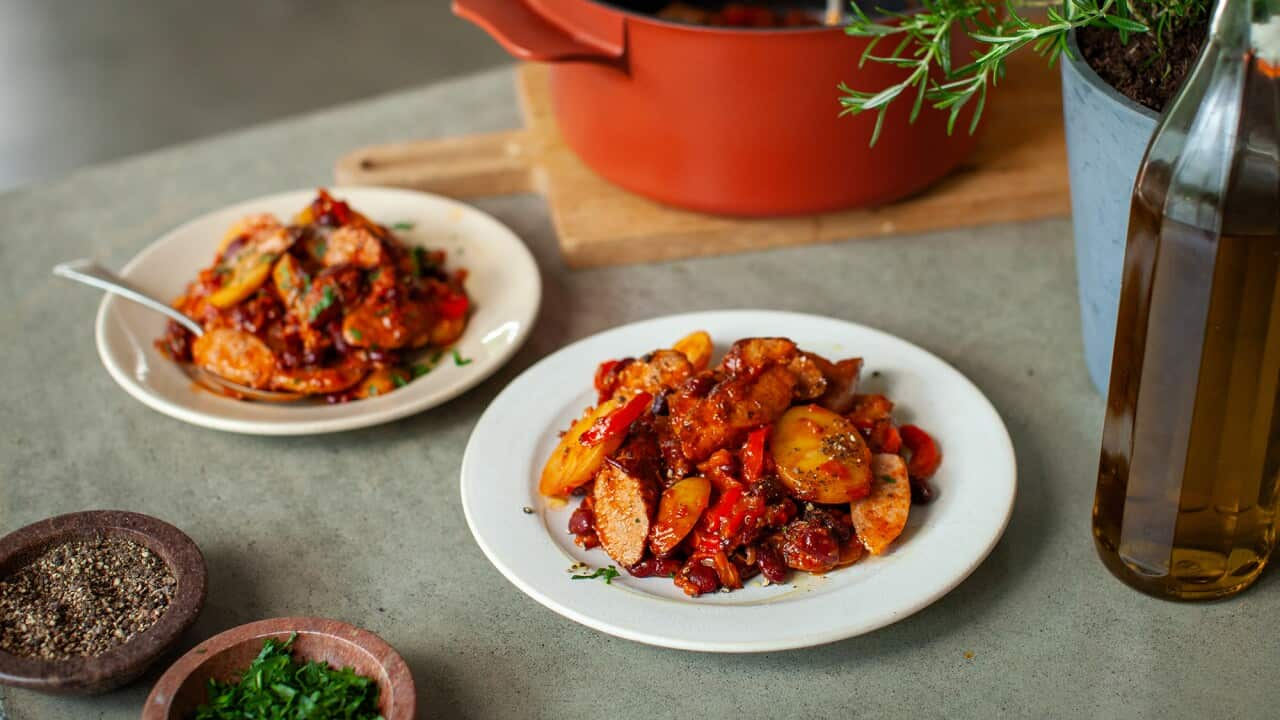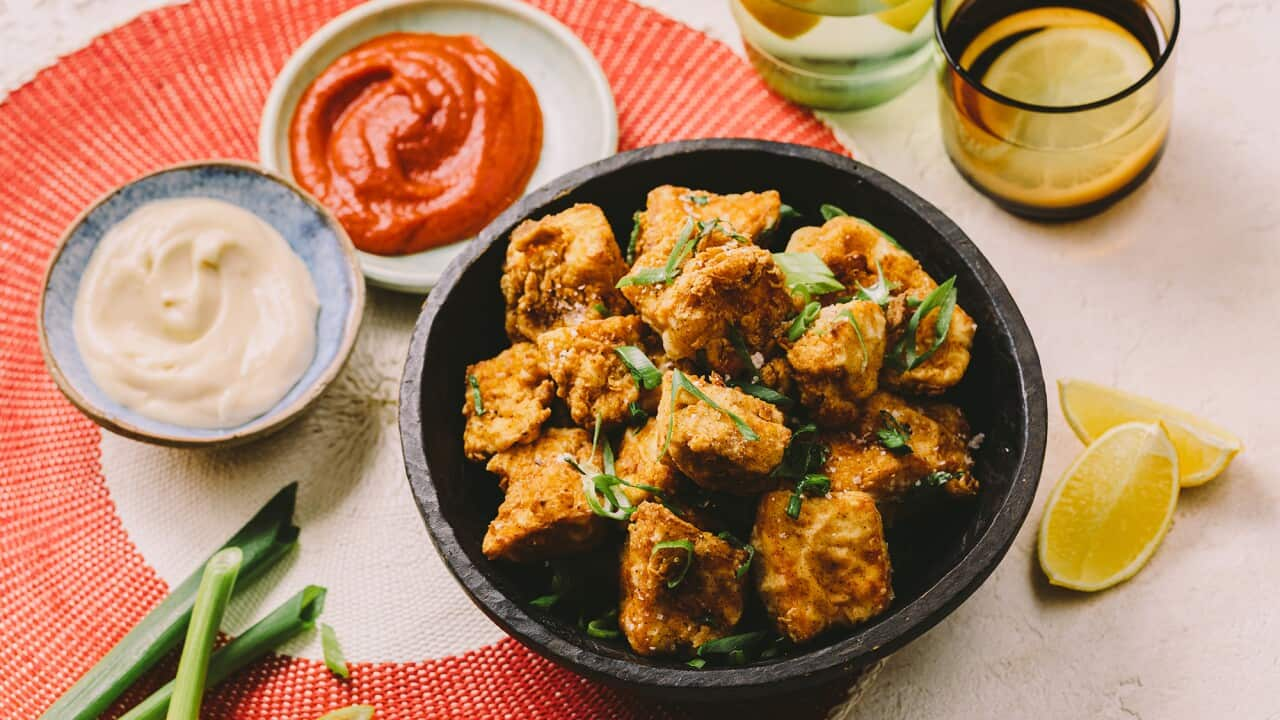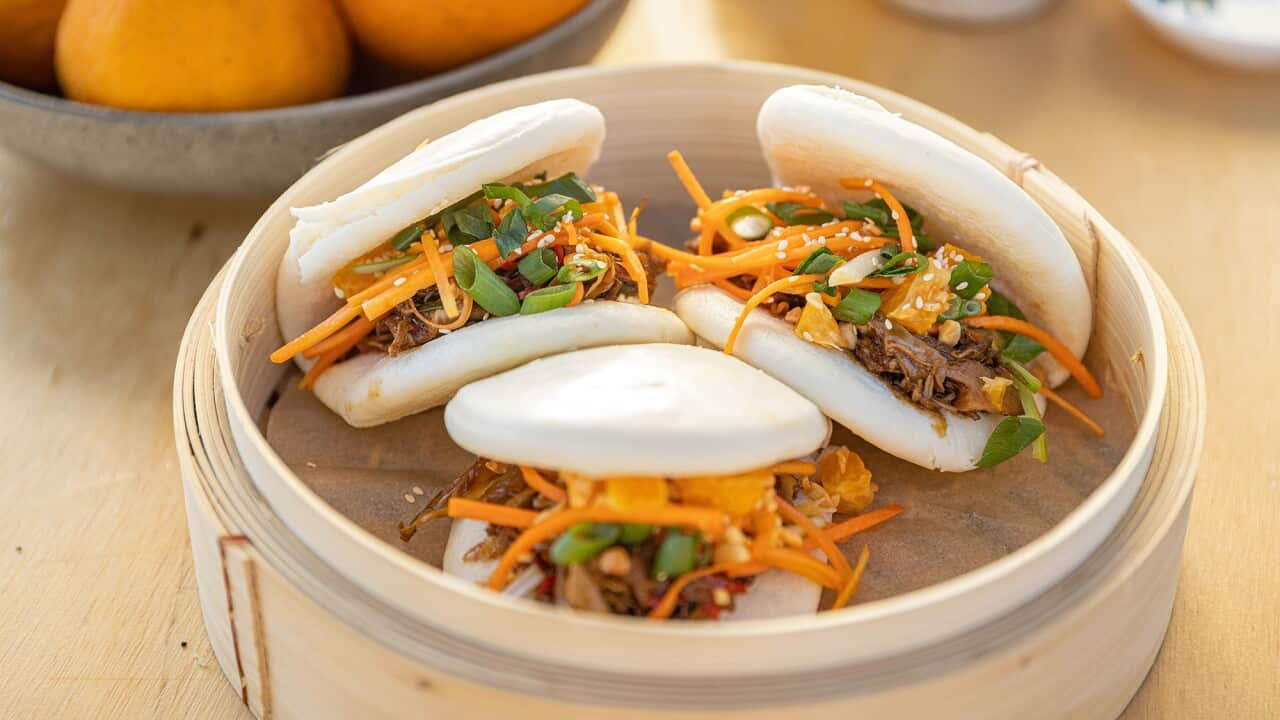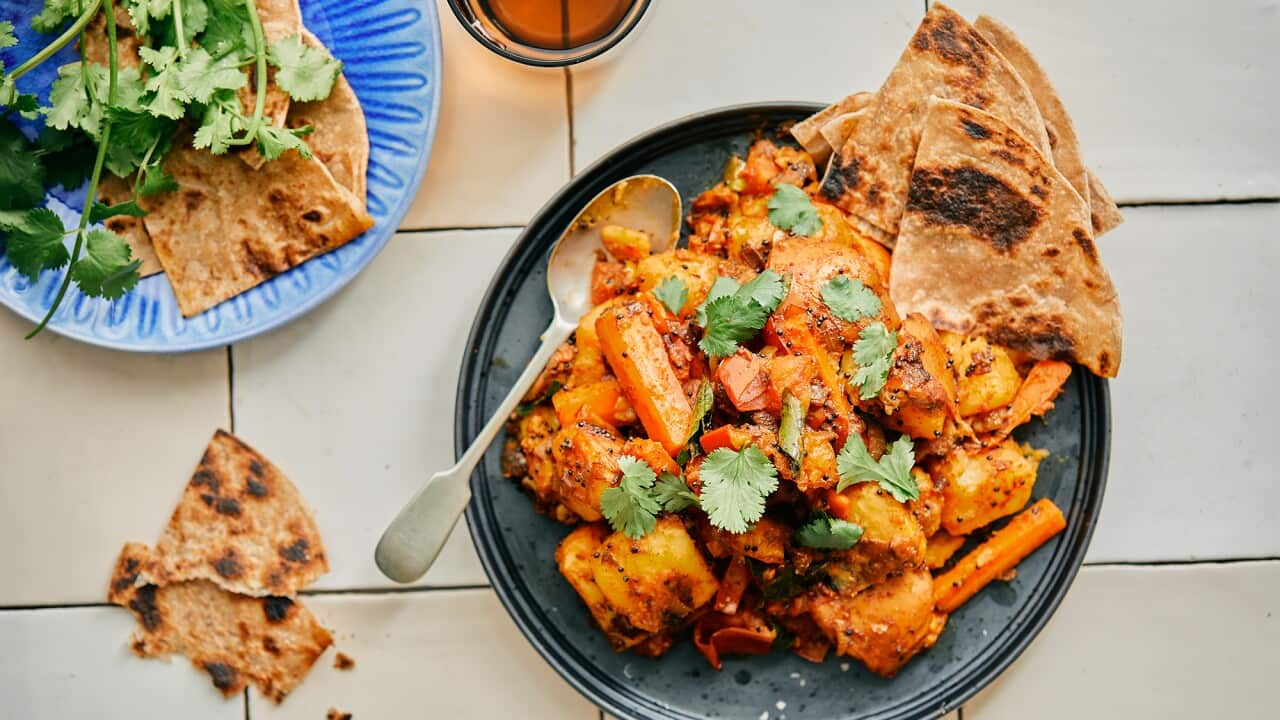serves
2
prep
20 minutes
cook
20 minutes
difficulty
Easy
serves
2
people
preparation
20
minutes
cooking
20
minutes
difficulty
Easy
level
Stream free On Demand

Food Culture
episode • The Cook Up with Adam Liaw • cooking • 25m
PG
episode • The Cook Up with Adam Liaw • cooking • 25m
PG
Ingredients
- 2 eggplants
- Salt
- 1 litre vegetable oil, for deep-frying
- 2 duck breasts
- 6 slices yellow daikon pickles (see Note), to serve
- 1 tbsp finely chopped chives, to serve
- Shichimi togarashi, to serve
For the miso glaze
- 2 tbsp sake
- 2 tbsp mirin
- 4 tbsp red miso
- 2 tbsp dark brown sugar
- 2 tsp grated ginger, juice only
Instructions
- To make the miso glaze, combine the glaze ingredients in a small saucepan and stir over medium heat for about 3 minutes, or until the sugar is dissolved and the sauce is glossy. Remove from the heat.
- Halve the eggplants, then thinly slice into half-moons. Layer the slices on a baking tray and sprinkle generously with salt. Allow to stand for 20 minutes, then rinse and pat dry with a clean tea towel. Heat the oil for deep-frying in a large saucepan or deep-fryer to 180˚C, then fry the eggplant in batches until golden brown and crisp in parts.
- Place the duck breasts skin-down in a cold frying pan, then place over medium-low heat. Cook for about 15 minutes skin-side down, then turn and cook for a further 3 – 5 minutes, or until the duck is medium rare. Transfer the duck to a cutting board and allow to rest. Brush the duck with a little of the miso glaze.
- Thickly slice the duck breasts. Spoon some extra miso glaze onto the plates, then top with the sliced duck. Serve with fried eggplant, sliced daikon pickles and garnish with the chives and shichimi togarashi.
Note
These yellow radish pickles are typically found at your local Korean supermarket. Shichimi togarashi is a type of Japanese spicy sprinkle commonly used as a garnish and can also be found at supermarkets and Asian shops.
Photography by Jiwon Kim.
Cook's Notes
Oven temperatures are for conventional; if using fan-forced (convection), reduce the temperature by 20˚C. | We use Australian tablespoons and cups: 1 teaspoon equals 5 ml; 1 tablespoon equals 20 ml; 1 cup equals 250 ml. | All herbs are fresh (unless specified) and cups are lightly packed. | All vegetables are medium size and peeled, unless specified. | All eggs are 55-60 g, unless specified.
Stream free On Demand

Food Culture









